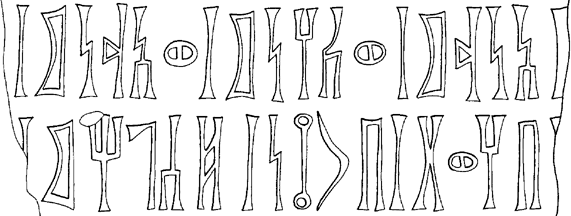The South Arabian was used for monunmental inscriptions, and was also carved into wooden sticks, which were used as everyday documents.
Notable features
- Type of writing system: abjad / consonant alphabet
- Direction of writing: usually right to left in horizontal lines, and sometimes left to right
- Used to write: Sabaean, Qatabanian, Hadramautic, Minaean, Himyarite and proto-Ge'ez
- Words were separated with a vertical bar (|)
South Arabian alphabet

Sample text

Source: http://www.barnard.nl/yemen/mb88.html
Links
Information about the South Arabian alphabethttp://en.wikipedia.org/wiki/South_Arabian_alphabet
http://www.ancientscripts.com/s_arabian.html
Written in Stone: Inscriptions from the National Museum of Saudi Arabia
http://www.mnh.si.edu/epigraphy/
Corpus of South Arabian Inscriptions
http://csai.humnet.unipi.it
Ancient South Arabian Inscriptions in Baynun (Yemen)
http://www.barnard.nl/yemen/









.jpg)
.jpg)

.jpg)





0 comments:
Post a Comment
Note: Only a member of this blog may post a comment.